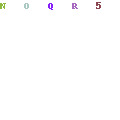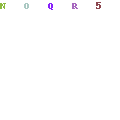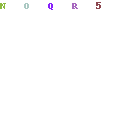Common Warts
Home Remedy Wart Removal
Common Warts
Before you decide to remove your warts, it may be a good idea to first understand the common types of warts that most Americans suffer from. There's a good chance that these warts are the same kind that you're suffering from. A large number of men, women and children all over America suffer from warts, and although some are virtually harmless, I recommend that you find out more about the common forms of warts before deciding to remove them using home remedies.
As you know by now, most warts are common and can occur in individuals of all ages and races. They typically grow in clusters on the hands and fingers, and are rarely found alone. Common warts mostly appear on areas with broken skin, as that is how the wart virus is introduced into the body. Broken skin usually occurs on the hands and fingers (from nail biting) - so that's why warts grow there. In terms of physical characteristics, most common warts are hard or have a rough or scratchy surface.
Common Wart Types
Plain warts or flat warts another common type of wart. They tend to grow in larger groups like most other warts, but unlike the other warts, these kinds tend to be softer to the touch. These forms of warts are often associated with cuts caused by shaving, causing the warts to grow on the face.
Planter warts are another form of common warts. Unlike most other common warts that tend to grow on the face, hands and fingers, planter warts grow mostly on the feet. This causes the sufferer much pain and inconvenience while walking, especially when the wart grows in a cluster (instead of a single wart). Another painful characteristic of planter warts are that unlike other warts that grow outwards, planter warts tend to grow inwards (yikes).
Although the above-mentioned warts are considered the most common “traditional,” types of warts in America, there is yet another type of wart that is slowly but surely spreading across the country. Those warts are known as genital warts. Genital warts are not only known as a skin condition, but are considered a sexually transmitted disease (STD) as well. This is because these warts are most commonly spread through sexual intercourse, sometimes even through protected intercourse. In some cases, genital warts are more difficult to have removed, but like most other warts, it is still possible.
Your Next Step
Now that you may be able to determine the type(s) of wart(s)you have, you'll need to decide whether you want to have your warts removed. Almost all warts can be safely removed at home, but it is advised that seek professional advice if you have genital warts. For the other more common types, you might want to consider an effective natural, non-surgical methods of home remedy wart removal.
Common Warts
Before you decide to remove your warts, it may be a good idea to first understand the common types of warts that most Americans suffer from. There's a good chance that these warts are the same kind that you're suffering from. A large number of men, women and children all over America suffer from warts, and although some are virtually harmless, I recommend that you find out more about the common forms of warts before deciding to remove them using home remedies.
As you know by now, most warts are common and can occur in individuals of all ages and races. They typically grow in clusters on the hands and fingers, and are rarely found alone. Common warts mostly appear on areas with broken skin, as that is how the wart virus is introduced into the body. Broken skin usually occurs on the hands and fingers (from nail biting) - so that's why warts grow there. In terms of physical characteristics, most common warts are hard or have a rough or scratchy surface.
Common Wart Types
Plain warts or flat warts another common type of wart. They tend to grow in larger groups like most other warts, but unlike the other warts, these kinds tend to be softer to the touch. These forms of warts are often associated with cuts caused by shaving, causing the warts to grow on the face.
Planter warts are another form of common warts. Unlike most other common warts that tend to grow on the face, hands and fingers, planter warts grow mostly on the feet. This causes the sufferer much pain and inconvenience while walking, especially when the wart grows in a cluster (instead of a single wart). Another painful characteristic of planter warts are that unlike other warts that grow outwards, planter warts tend to grow inwards (yikes).
Although the above-mentioned warts are considered the most common “traditional,” types of warts in America, there is yet another type of wart that is slowly but surely spreading across the country. Those warts are known as genital warts. Genital warts are not only known as a skin condition, but are considered a sexually transmitted disease (STD) as well. This is because these warts are most commonly spread through sexual intercourse, sometimes even through protected intercourse. In some cases, genital warts are more difficult to have removed, but like most other warts, it is still possible.
Your Next Step
Now that you may be able to determine the type(s) of wart(s)you have, you'll need to decide whether you want to have your warts removed. Almost all warts can be safely removed at home, but it is advised that seek professional advice if you have genital warts. For the other more common types, you might want to consider an effective natural, non-surgical methods of home remedy wart removal.




